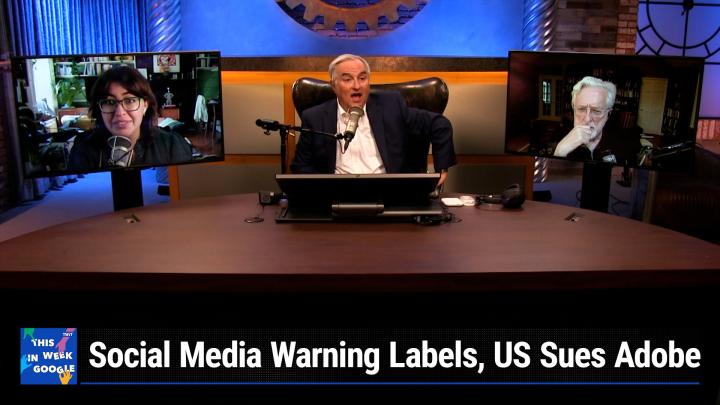Mozilla's Recent Acquisition of Anonym
AI written, human edited.
Mozilla, the organization behind the popular Firefox browser, has recently made waves in the tech world with its acquisition of Anonym, an ad metrics firm. This move has ignited a passionate discussion among industry experts and users alike, raising questions about the balance between user privacy and the sustainability of ad-supported internet media.
On a recent episode of This Week in Google, hosts Leo Laporte, Jeff Jarvis, and Paris Martineau delved into the implications of this acquisition and what it means for the future of online advertising and user privacy.
Mozilla has long been viewed as a champion of user privacy. Firefox serves as an alternative to Google Chrome for those seeking to avoid intrusive data collection. However, the purchase of Anonym, a company founded by former Meta executives, has left many wondering if Mozilla is compromising its values.
As Leo Laporte pointed out, "Many Mozilla users use Mozilla because it's not Google, because you can put ad blocking on it." This acquisition seems to contradict the image Mozilla has cultivated since the 1990s, which has always implied an avoidance of online advertising.
Anonym's technology aims to provide a middle ground between effective advertising and user privacy. According to the discussion, the company allows advertisers to join their first-party data with publisher data for measurement, targeting, and optimization purposes. However, this occurs in a secure environment where individual data is not accessed by humans.
Paris Martineau summarized Anonym's process in three parts:
1. Secure environment: Data sets are matched in a highly secure setting.
2. Anonymized analytics: The process results in anonymized insights and models.
3. Differential privacy algorithms: These add noise to the data, protecting it from being traced back to individuals.
Jeff Jarvis emphasized the need for new models to support ad-supported internet media. The hosts discussed the challenges faced by content creators and publishers who need to prove the effectiveness of their advertising to secure revenue.
Leo Laporte shared his own experience with podcast advertising, describing a similar process used by his network to provide advertisers with aggregated data on ad effectiveness without compromising individual user privacy.
This acquisition highlights the ongoing struggle in the tech industry to balance user privacy with the need for sustainable business models. As Paris Martineau noted, while many users demand privacy and ad-free experiences, they are often unwilling to pay for content directly.
The discussion touched on the dilemma faced by companies like Meta, which argue that without behavioral advertising, users would have to pay for services directly. This raises questions about the future of free, ad-supported content on the internet.
According to Mozilla's blog post, this acquisition is a step towards addressing the need for privacy-preserving advertising solutions. The company aims to provide advertisers with the insights they need while safeguarding consumer privacy.
While Mozilla's acquisition of Anonym has raised concerns among privacy advocates, it also represents an attempt to find a middle ground in the complex landscape of online advertising. As the internet continues to evolve, finding ways to support content creators and publishers while respecting user privacy remains a critical challenge.
The hosts of This Week in Google, while cautious, seemed to view this development as a potentially positive step towards more privacy-conscious advertising models. However, they also emphasized the need for transparency and ongoing scrutiny to ensure that user privacy remains protected.
As the digital advertising landscape continues to shift, it's clear that the conversation around privacy, advertising, and the sustainability of online content is far from over. Mozilla's move with Anonym may well be a glimpse into the future of internet advertising – one that attempts to balance the needs of all stakeholders in the digital ecosystem.
Become a subscriber and never miss an episode: This Week in Google
